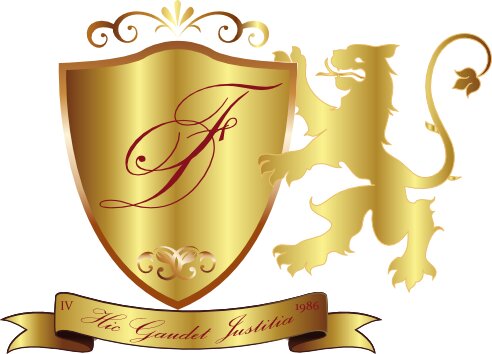Best Trusts Lawyers in Turin
Share your needs with us, get contacted by law firms.
Free. Takes 2 min.
List of the best lawyers in Turin, Italy
About Trusts Law in Turin, Italy
Trusts are legal arrangements where one party (the settlor) transfers assets to another (the trustee) to manage for the benefit of a third party (the beneficiary). In Italy, including Turin, trusts do not originate from the local civil law tradition but have been recognized and regulated following Italy’s adherence to the Hague Convention on the Law Applicable to Trusts and on their Recognition in 1985. This allows foreign law trusts to be set up and recognized within the Italian legal framework. In practice, trusts are increasingly used in Turin for estate planning, asset protection, charitable purposes, and business succession.
Why You May Need a Lawyer
Navigating trusts in Turin can be complex due to interactions between international and Italian law. You may need a lawyer if:
- You are considering establishing a trust for family succession planning.
- You wish to protect personal or business assets from creditors or potential disputes.
- You are a beneficiary or trustee involved in the administration of a trust.
- You want to structure a charitable trust or endowment.
- You are dealing with cross-border assets and require compliance with Italian and international laws.
- You are facing tax questions or disputes related to trust income or transfers.
- You want to challenge or clarify the terms of an existing trust.
Local Laws Overview
Key aspects of the law regarding trusts in Turin include:
- Legal Recognition: Italy recognizes foreign law trusts through its ratification of the Hague Convention. Italian law does not have its own substantive trust regulation but allows the creation of trusts under foreign laws.
- Applicable Law: The settlor must choose the law that will govern the trust (often English, Jersey, or other common law jurisdictions).
- Registration: In some cases, trusts in Turin may need to be registered, especially if they hold real estate or other Italian assets.
- Tax Regime: Trusts are subject to specific tax rules regarding inheritance and income taxes. Tax treatment depends on the type of trust (revocable vs. irrevocable, discretionary vs. fixed).
- Transparency and Reporting: Trustees may be required to disclose information to Italian tax authorities, including ultimate beneficiaries.
- Asset Protection: While trusts can help protect assets, they are subject to Italian rules concerning creditors’ rights and forced heirship for family members.
Frequently Asked Questions
What is a trust and how is it used in Turin, Italy?
A trust is a fiduciary relationship where one party holds assets for the benefit of another. In Turin, it is commonly used for managing and transferring wealth, protecting assets, and planning for succession, despite not being a traditional instrument under Italian law.
Can Italian residents establish a trust?
Yes, but it must be set up under the laws of a foreign jurisdiction recognized by Italy, such as English law, due to the absence of domestic trust legislation.
What are the main types of trusts used in Turin?
Common types include discretionary trusts (trustees decide distributions), fixed trusts (beneficiaries and their shares are predetermined), and testamentary trusts (set up by a will).
How are trusts taxed in Italy?
Trusts are subject to specific tax regulations. Taxation depends on the trust’s structure and the residency of beneficiaries. Both income tax and inheritance/gift taxes may apply.
Do trusts in Turin require registration?
Trusts holding Italian real estate or significant assets may need to register for tax and transparency purposes with Italian authorities.
Can a trust be used to avoid Italian forced heirship rules?
Trusts can provide flexibility in asset allocation, but Italian forced heirship rules protect certain family members' inheritance rights, which can sometimes override trust arrangements.
Who can be a trustee in a Turin-based trust?
Trustees can be individuals or companies, often chosen from jurisdictions with well-established trust laws, but they must comply with Italian reporting and tax obligations if managing Italian assets.
What are the duties of a trustee?
Trustees must manage the trust according to its terms and the chosen foreign law, act in the best interests of the beneficiaries, keep accounts, and comply with tax and reporting requirements.
Can trusts in Turin be used for business purposes?
Yes, trusts can hold shares, intellectual property, or other business assets for purposes such as succession planning or asset protection.
How can I find a lawyer specializing in trusts in Turin?
Look for lawyers or notaries with expertise in international private law, estate planning, and the functioning of foreign trusts within the Italian context.
Additional Resources
To assist with trust matters in Turin, consider the following resources:
- Consiglio Nazionale del Notariato: Offers guidance on trusts and succession issues.
- Ordine degli Avvocati di Torino (Turin Bar Association): Provides a directory of qualified lawyers, including those specializing in trusts and inheritance law.
- Agenzia delle Entrate (Italian Revenue Agency): Supplies information on the taxation and reporting of trusts.
- Professional associations of trust and estate planners: Offer resources, best practices, and referrals to qualified professionals familiar with cross-border trust arrangements.
Next Steps
If you believe a trust could be relevant to your personal, family, or business circumstances in Turin, it is wise to:
- Clarify your objectives (wealth management, succession, asset protection, etc.).
- Gather all relevant documents related to your assets, beneficiaries, and any prior legal arrangements.
- Contact a lawyer or notary with experience in trusts and international estate planning. Ensure they are well-versed in both Italian and relevant foreign trust laws.
- Discuss the best foreign law under which to establish the trust, considering your needs and the Italian legal context.
- Work with your advisor to draft the trust deed and ensure compliance with Italian tax and registration requirements.
- Follow up periodically to ensure your trust remains effective and legally compliant as your situation or the law changes.
Legal matters involving trusts are intricate, so expert advice is crucial to protect your interests and those of your intended beneficiaries.
Lawzana helps you find the best lawyers and law firms in Turin through a curated and pre-screened list of qualified legal professionals. Our platform offers rankings and detailed profiles of attorneys and law firms, allowing you to compare based on practice areas, including Trusts, experience, and client feedback.
Each profile includes a description of the firm's areas of practice, client reviews, team members and partners, year of establishment, spoken languages, office locations, contact information, social media presence, and any published articles or resources. Most firms on our platform speak English and are experienced in both local and international legal matters.
Get a quote from top-rated law firms in Turin, Italy — quickly, securely, and without unnecessary hassle.
Disclaimer:
The information provided on this page is for general informational purposes only and does not constitute legal advice. While we strive to ensure the accuracy and relevance of the content, legal information may change over time, and interpretations of the law can vary. You should always consult with a qualified legal professional for advice specific to your situation.
We disclaim all liability for actions taken or not taken based on the content of this page. If you believe any information is incorrect or outdated, please contact us, and we will review and update it where appropriate.









